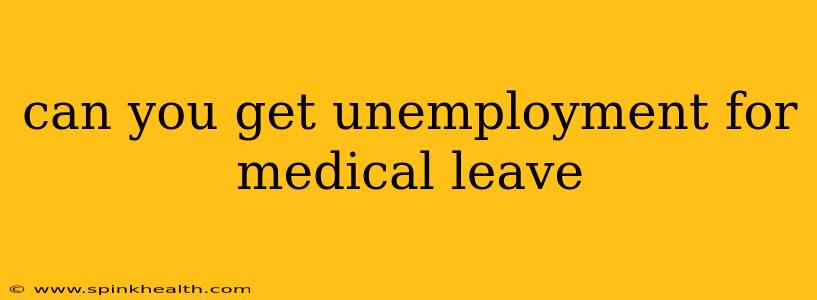Can You Get Unemployment for Medical Leave? Navigating the Complexities of Illness and Job Loss
The question, "Can you get unemployment for medical leave?" is a common one, fraught with complexities and varying answers depending on your location, the specifics of your leave, and your employer's policies. It's a situation that often leaves individuals feeling lost and uncertain about their financial future. Let's delve into this challenging topic, exploring the nuances and potential pathways to support during a time of illness.
Imagine this: Sarah, a dedicated graphic designer, falls seriously ill. Her doctor orders a prolonged period of medical leave, leaving her unable to work. Her employer, while sympathetic, doesn't offer paid sick leave. Sarah wonders, "Can I receive unemployment benefits?" This scenario highlights the core dilemma many face – balancing health needs with financial stability.
What Determines Unemployment Eligibility During Medical Leave?
The eligibility for unemployment benefits during medical leave hinges on several crucial factors:
-
Your State's Unemployment Laws: Unemployment regulations vary significantly from state to state. Some states may be more lenient in approving benefits for medical reasons, while others have stricter requirements. This is the most critical factor to understand. Your state's unemployment agency website is your primary resource for accurate information.
-
The Reason for Your Medical Leave: Was the leave due to a short-term illness, a long-term condition, or a work-related injury? Work-related injuries often fall under workers' compensation, not unemployment. Non-work-related illnesses might qualify, but you'll need to meet specific criteria, often related to your ability to work.
-
Your Employer's Policies: Did your employer offer any paid sick leave, short-term disability, or other leave options? If you exhausted all available leave options from your employer and are still unable to work due to your illness, your chances of receiving unemployment benefits may increase.
-
Your Ability to Work: Unemployment benefits are typically awarded to individuals who are able and available to work. If your medical condition completely prevents you from working, this could affect your eligibility. However, if you are partially able to work, this would influence the decision made by the unemployment agency.
What if My Employer Fired Me While on Medical Leave?
This scenario changes the equation significantly. If you were fired while on approved medical leave, particularly if you believe it was discriminatory or in violation of federal or state laws, you'll likely have a stronger case for unemployment benefits. Your state's unemployment agency will investigate the circumstances of your termination. Consulting with an employment lawyer might be prudent in such situations.
Can I Get Unemployment if I Quit My Job Due to Illness?
Generally, quitting your job due to illness will not automatically qualify you for unemployment benefits. Unemployment benefits are designed for individuals involuntarily separated from their employment. However, there might be specific circumstances where an exception could be made. Again, consult your state's unemployment agency for guidance.
What Documentation Do I Need to Apply for Unemployment During Medical Leave?
The required documentation varies by state, but typically includes:
-
Medical documentation: A doctor's note or other medical evidence outlining your condition, the duration of your leave, and your ability to work.
-
Employment history: Information about your previous employment, including dates of employment, reason for leaving, and employer contact information.
-
Proof of income: Information about your past earnings and tax returns.
The Bottom Line: Seek Professional Guidance
Navigating unemployment claims during medical leave can be challenging. The best approach is to directly contact your state's unemployment agency. They can provide specific guidance based on your individual situation and applicable state laws. If your case involves complex issues, such as wrongful termination, seeking legal counsel is advisable. Remember, it's crucial to provide complete and accurate information throughout the application process. Your honesty and diligence will contribute to a smoother and more successful outcome.

